Choosing A Walker That Is Right For You.
Find the best walker for you, learn how to use it properly, and find walker accessories to help keep you safe.
5/20/20255 min read


As a physical therapist, it's not uncommon to find yourself people watching frequently. More specifically, analyzing people's gait. I cannot tell you how many times I have observed someone walking and either A) wish they had a walker, or B) would like to approach them and give them some education on how they are using their walker. Well, now's my chance to provide some insight to the world (or at least my viewers), about all things walker related.
Making a decision to use a walker, or perhaps having someone recommend the use of a walker, can be a little disheartening. But, if allows you to stay mobile and keep you from falling, it really is a small price to pay. So where do you start when choosing the walker that is best for you?
Almost every patient of mine immediately is drawn to the fancy four wheeled walker with a seat. While these are essentially the Cadillac model of walkers, they aren't necessarily the greatest option for everyone. Let's discuss the pro's and con's of this type of walker.
Pros:
The obvious perk of this type of walker is the seat. If you are seeking a walker because you are someone who gets fatigued or short of breath easily, having a seat readily available to you at all times can be of great benefit. This can be especially helpful when you are out of your home walking longer distances, or out somewhere where they may not have many options to sit and rest. Having this walker provides you with a seat at any given time you may need a break from being on your feet.
Typically these walkers have seats that lift up and provide storage in a basket under them. This can also be quite handy if you are someone who needs some help getting things from one room to another in your house.
Cons:
When considering a four wheeled walker you need to keep in mind exactly what you are getting...a four wheeled walker. What this means, is that it is going to move around with great ease, sometimes maybe even faster than you realize. If you are a person who is heavily dependent on your walker for stability, this may not be the right choice for you, as it can get out away from you and you could fall. Just like a bicycle, these walkers have breaks on the handles to slow the speed of them when you get to going too fast, like going down a hill. So, if you are someone who may not have a fast response time and be able to quickly break if that walker is getting away, this would not be the safest option for you.
Another consideration for this type of walker is the bulkiness of the walker itself. They are not as compact and easy to get into and out of a vehicle. If you are someone who is typically independent in driving yourself to appointments, keep in mind that you will have to be able to lift this walker into and out of your car whenever you go places.
A basic front wheeled walker is traditionally the walker most people choose. Let's discuss some of the pros and cons of this option.
Pros:
A basic front wheeled walker will generally provide a great deal of stability. Because it only has wheels in the front, and not the back, it can't get away from you as easily. Sometimes people don't like the back legs scraping on their floor, or they find the back legs can get caught on things while they are walking. There are options for this, such as walker skis or tennis balls, that can help the walker glide a little better but still provide more stability than having wheels there. I will attach some links for these below in case they would be helpful to you.
A front wheeled walker has a couple easy buttons attached to it to help you fold it up a little more compactly. It is also much lighter than a four wheeled walker. For these reasons, it can be much more accommodating to tuck away in the car with you when you leave for appointments or errands.
Cons:
A standard front wheeled walker doesn't have a seat or storage compartment built into it. This can make it a little more difficult to get things around your home with you. There are again some options to assist with this however. Many walker accessories are available, such as walker baskets, trays, and cupholders that can easily attach to your walker to assist with getting things from point A to point B while your hands are not free. I will again post some links to these products for you to view.
Most insurances will cover a mobility device every 5 years. If you find that you need a walker, talk to your doctor in person and request they write you an order to help cover your walker cost. Usually, only a traditional front wheeled walker is covered, not a four wheeled walker. However, some medical stores will allow you to take the cost of the front wheeled walker and apply it toward the cost of a four wheeled walker, while you just pay the difference. If you are not eligible for insurance to cover a walker, and you need one, don't worry. There are some cost efficient, reliable walkers available that you can purchase on your own.
I will post a video in the Resources section demonstrating how to assure your walker is set to the proper height. I will also give a demonstration on the right way to use your walker effectively and safely. I hope I've added some helpful knowledge and tips between this post, my video, and accessories links that can help you find some greater safety and ease of navigating around your home if and when you need a walker.
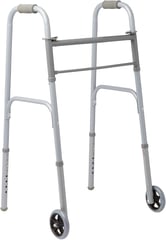

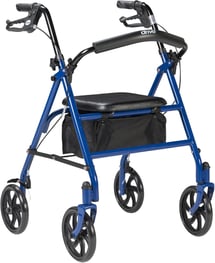

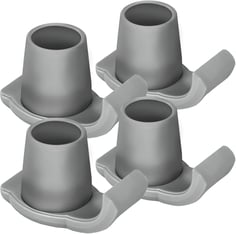

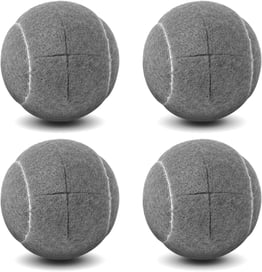

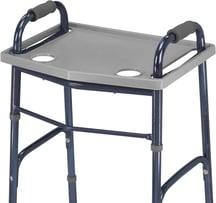

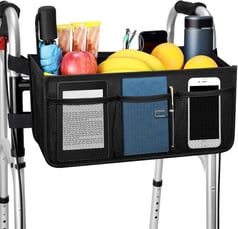

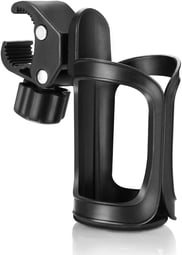

https://amzn.to/3F8V61r (Amazon)
https://amzn.to/4ksyacZ (Amazon)
https://amzn.to/43RNcBZ (Amazon)
https://amzn.to/3YXNNjK (Amazon)
https://amzn.to/43d9v5Z (Amazon)
https://amzn.to/3Sj1u99 (Amazon)
https://amzn.to/4k1YBFY (Amazon)
